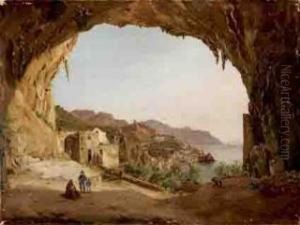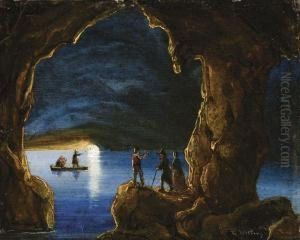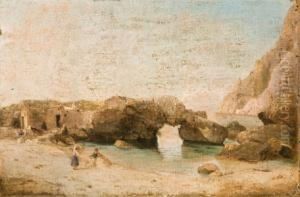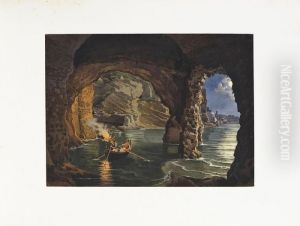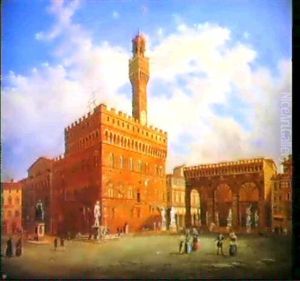Teodoro Guglielmo Witting Paintings
Teodoro Guglielmo Witting was an Italian painter primarily known for his landscape and genre paintings. Born on April 19, 1830, in Milan, Italy, Witting was part of the Lombard school of painting, which was a significant movement in the 19th century that focused on natural landscapes and everyday life scenes.
Witting's early life and training are not extensively documented, but it is known that he was influenced by the works of the leading artists of his time. He was particularly impressed by the naturalistic approach to landscape painting, which was gaining popularity during that period. These influences are evident in his careful attention to detail and his dedication to capturing the light and atmosphere of his surroundings.
Throughout his career, Witting exhibited his works in various Italian cities. His paintings often depicted the Italian countryside, including the regions of Lombardy and Piedmont. He was also known to paint scenes of the Italian Alps, capturing their majestic beauty. Witting's genre paintings, on the other hand, portrayed the daily lives of rural and urban dwellers, providing a glimpse into the customs and traditions of the time.
Witting's contribution to Italian art was recognized in his lifetime, and he was considered a respected member of the Milanese art community. Despite this, he did not gain the same level of international fame as some of his contemporaries. As a result, detailed records of his life and works are somewhat scarce, which is why his name may not be as widely recognized as other artists of the 19th century.
Teodoro Guglielmo Witting passed away on April 11, 1911, in Milan. Although he may not be a household name, his works continue to be appreciated by art historians and collectors who have an interest in the Lombard school of painting and the evolution of landscape and genre painting in Italy during the 19th century. His paintings are a testament to the era he lived in and reflect the cultural and artistic sensibilities of his time.
